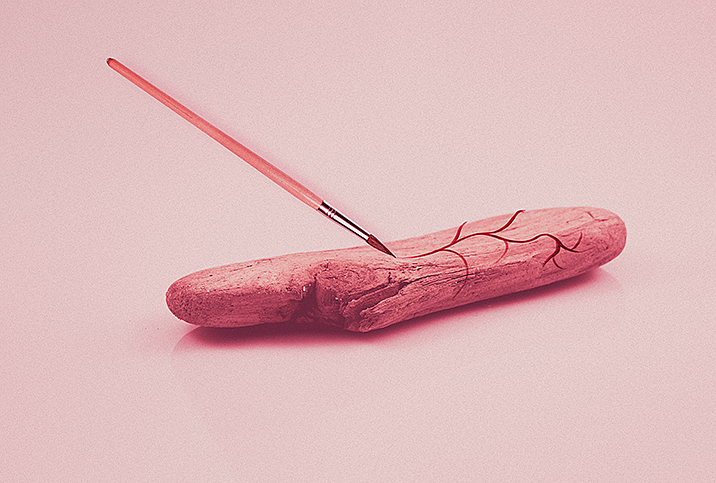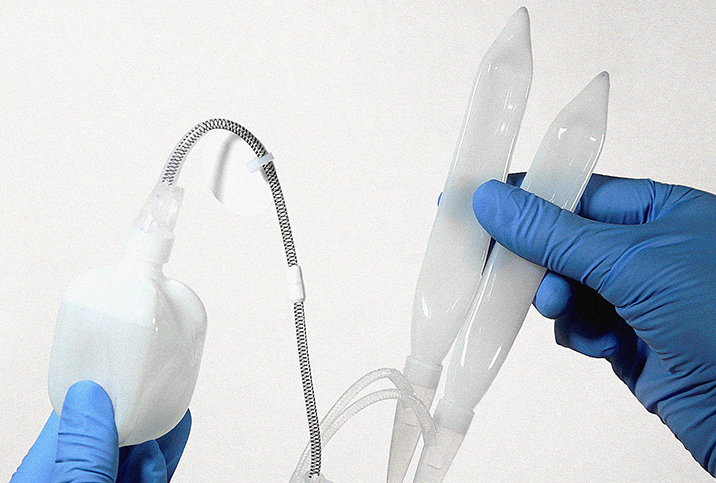Surgery May Offer Hope for Injury-Caused ED

Erectile dysfunction, or ED, occurs when a man can't achieve or maintain an erection long enough for intercourse. It's both a short-term and long-term problem that affects around 30 million American men, and the rates of ED increase with age.
Treatment is possible, but men who are experiencing ED as the result of an injury face an uphill battle. Some guys find relief with a treatment called penile revascularization, so find out if this approach is right for you.
Causes of erectile dysfunction
Erectile dysfunction has many underlying causes, some of which are medical conditions such as heart disease, kidney disease and diabetes. However, ED can also be the result of certain lifestyle choices, including a poor diet, obesity and prolonged use of tobacco, drugs and alcohol. For many of these patients, prescription drugs or lifestyle changes can alleviate the symptoms and help them bounce back in the sack.
But men who have suffered a traumatic injury to their genital area may discover that these options don't cure their ED. That's when a doctor might suggest penile revascularization. Although rarely used and nearly unknown to the general public, this might be one of the few options left for men with injury-caused ED.
What is penile revascularization?
Also known as microvascular arterial bypass surgery, penile revascularization is a procedure to correct ED in patients with pelvic, perineal or genital trauma. The surgery, typically completed in six hours under anesthetic, requires a doctor with a specialization in microvascular surgery.
Similar to a cardiac bypass, the doctor takes a blood vessel from the lower abdomen and connects it to a blood vessel in the penis. This bypasses any blockages (arterial lesions) that may have formed as a result of an injury. By circumnavigating the blockage, the penis can get the proper blood flow to achieve and maintain an erection.
Following the surgery, about 50 percent of men can get an erection naturally. A majority of the other 50 percent can achieve an erection but may also require additional treatment, such as prescription drugs or wearable devices, to maintain it.
Who is a prime candidate for penile revascularization?
In a vast majority of cases, the top candidates for penile revascularization surgery are men who have suffered an injury to their pelvic or genital area and have a penile arterial lesion. This can include blunt trauma to their perineum, the area between the anus and the scrotum that protects pelvic floor muscles, blood vessels and nerves. A report from Boston University indicates that this treatment is an option for healthy men younger than 50.
A 10-year follow-up study published in the International Journal of Impotence Research reports good success rates for younger patients but less successful outcomes for older patients and smokers. As such, older men may not find the surgery effective, especially when prescription drugs or devices may be able to provide the same benefits.
People who are not recommended for penile revascularization include men with a history of vascular problems. It's also not recommended for men who suffer from atherosclerosis because hardening of the arteries can lead to severe damage to the blood vessels of the penis.
What are the side effects of penile revascularization?
Any surgery—never mind one involving the penis—is going to have some potential side effects. Patients may also experience some discomfort at first, as well as reduced sensation, abdominal and scrotal pain and swelling.
Another side effect may be uncontrolled bleeding from the penis during the first few weeks after surgery, as well as during the first few sessions of intercourse; hence, a condom is highly recommended.
Rupture between the existing and harvested blood vessels is possible immediately following surgery, so men should avoid sex and masturbation for at least six weeks.
Men may still need to use other ED devices or medication following the surgery. As the surgery is elective and may not fix the problem, you'll have to weigh the pros and cons for yourself.
Discuss your treatment options with your doctor and loved ones
Just because penile revascularization is a treatment option doesn't mean it's the right one for you. While it may be the answer to your ED, make sure to consult your doctor and loved ones before you undergo the procedure. No matter which treatment you decide on, hopefully, you can restore the zest to your love life.


















